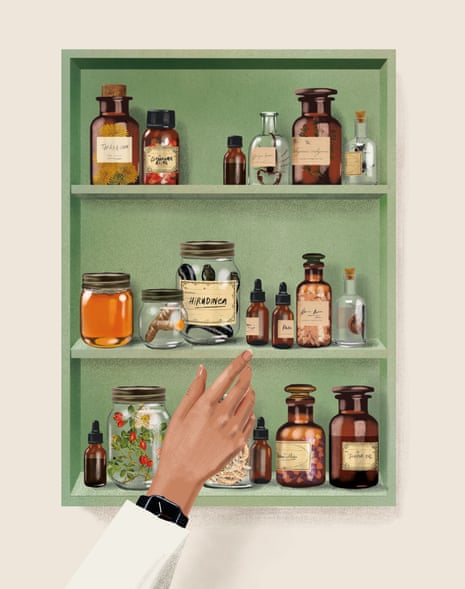Linda Poole
NCAT Regenerative Grazing Specialist
Talk about alternative crops in agriculture -- check this article by Amelia Tait in The Guardian:
Read the full article at https://www.theguardian.com/educati...rce=esp&utm_medium=Email&CMP=usbriefing_email
Medieval medicine: the return to maggots and leeches to treat ailments

‘Between 2007 and 2019, the number of NHS patients treated with maggots increased by 47%. Meanwhile, a farm in Wales supplies 60,000 leeches every year.’ Illustration: Barry Falls
The ObserverMedicine
Medieval medicine: the return to maggots and leeches to treat ailments
The rise in global antibiotic resistance means huge sums are being invested in ground-breaking treatments. But some scientists are turning back the clock in the hunt for effective alternatives.
Meet the new medicine – same as the old medicine. In an age where robots can perform hip replacements and livers can be repaired with lab-grown cells, why are ancient practices coming back into favour? Who are the doctors, farmers, professors and patients who have kept our ancestors’ practices alive? And are there more retired remedies hiding in the archives, ready to be revived?
Old time cattle and sheep folks sometimes let maggots clean wounds in livestock, and I saw the practice used successfully decades ago on a badly wire cut horse. But I never thought of it as a potential ag enterprise . . . .“There is a taboo that gets in the way of people using the technique,” says Sherman of maggot therapy. “But for many practitioners, once they try their first case – even if it’s a last resort – they see what it can do.” Studies have found that maggots reduce a wound’s surface area and promote healing faster than conventional dressings. Following Sherman’s work and the concurrent work of British doctor Steve Thomas, the NHS accepted the use of maggot therapy in 2004. In 2005, a private company spun out from the Welsh NHS Trust where Thomas worked – ZooBiotic, now BioMonde – a sterile maggot-production facility in Wales that is currently home to 24,000 flies.
Read the full article at https://www.theguardian.com/educati...rce=esp&utm_medium=Email&CMP=usbriefing_email





